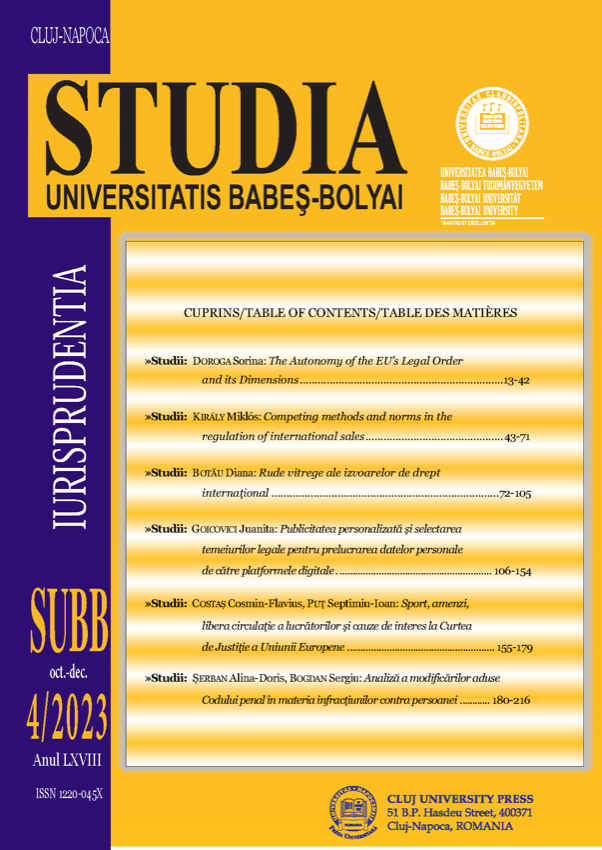Abstract
The concept of autonomy lies at the core of the distinctiveness of European Union law and of the EU’s legal order. While the EU system is a creation drawing features from both an international organization and a federal state, the European Court of Justice has strongly proclaimed in its case law the sui generis nature of the Union as a supranational entity, relying heavily on autonomy as a key principle of the Union’s legal order. Without purporting to cover the full spectrum of possible analytical approaches, this paper examines some of the conceptions regarding the nature and dichotomies characterizing the autonomy of EU law, which might prove helpful in mapping the evolution of the notion into an ‘existential’ principle of the EU. The paper also discusses the internal and external dimensions of autonomy, with an emphasis on the latter, illustrating the evolution of external perceptions and the EU’s dynamics on the international plane.

